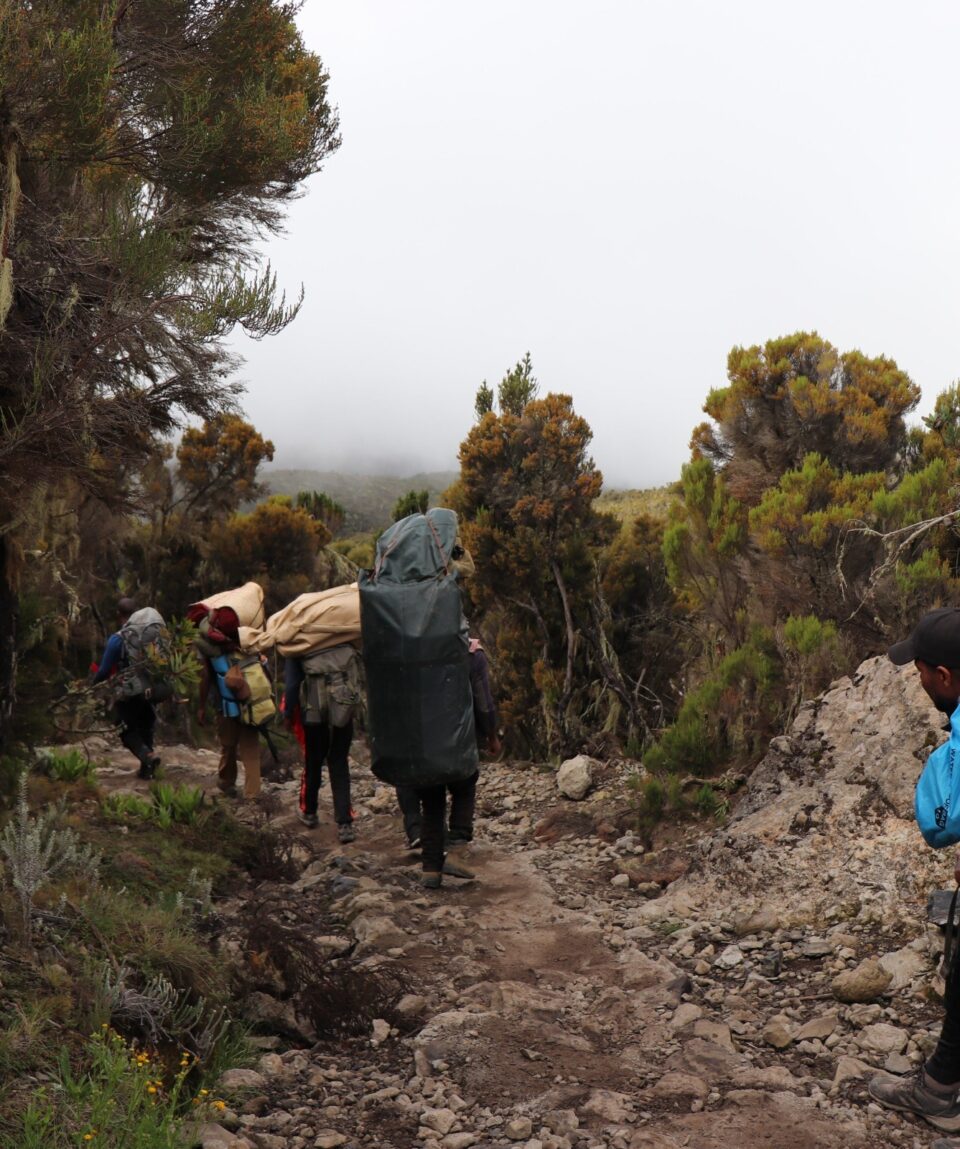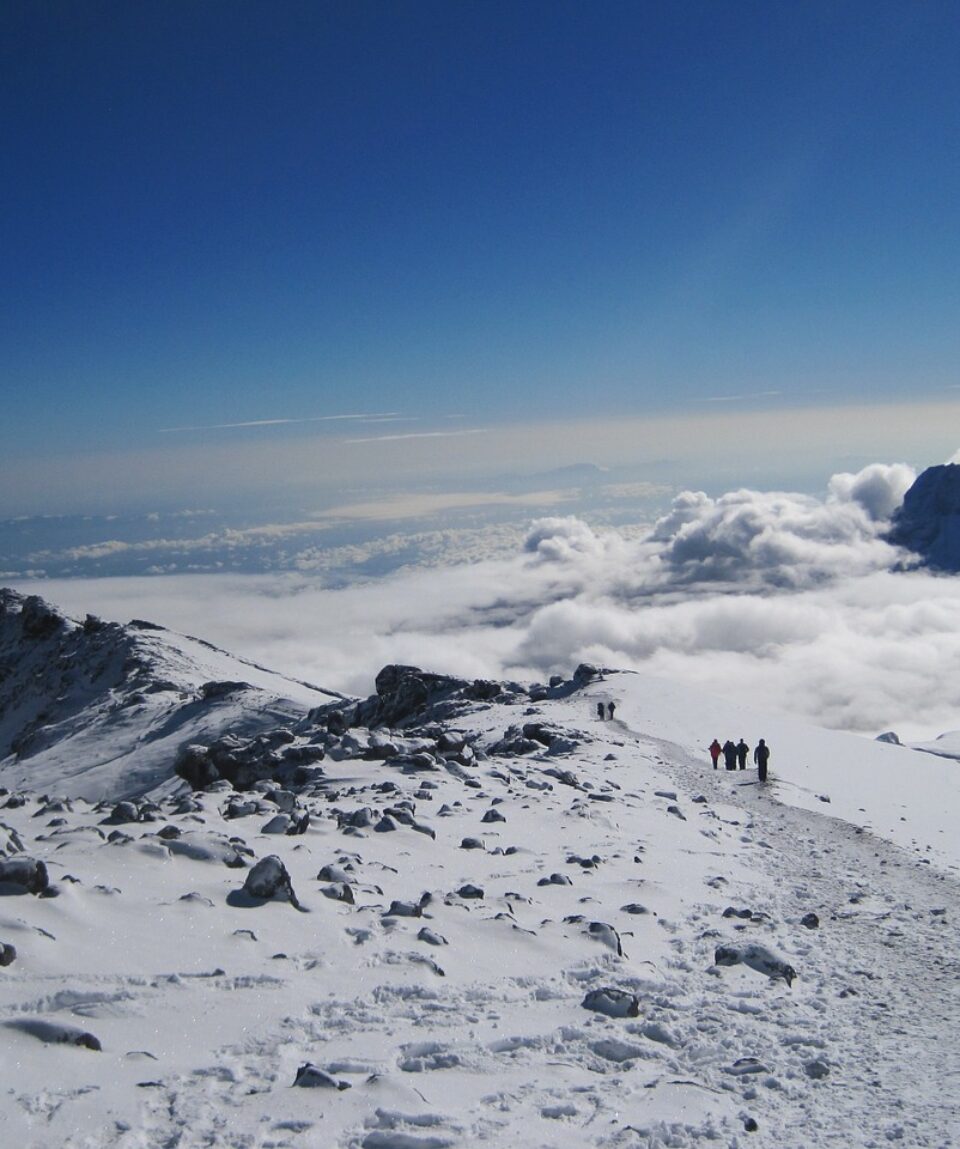8 Days Lemosho Route
from
$ 2,380
One of the most popular routes for trekking Mount Kilimanjaro, offering stunning scenery and a high success rate for summiting.
-
Reviews 0 Reviews0/5
-
Vacation Style Holiday Type
-
Africa
-
Hunting
-
Jungle
-
-
Activity Level Challenging
-
All about the 8 Days Lemosho Route.
Lemosho is one of the most popular routes for trekking Mount Kilimanjaro, offering stunning scenery and a high success rate for summiting. It is favored for its gradual ascent, which provides excellent acclimatization opportunities, and for being less crowded compared to other routes. Here are some key details about the Lemosho route:
The tour package inclusions and exclusions at a glance
What is included in this tour?Items that are included in the cost of tour price.
- Park Fees:
- Kilimanjaro National Park entry, camping, and rescue fees.
- Accommodation:
- Camping gear (tents, sleeping mats).
- Two nights’ hotel accommodation (before and after the trek) in Moshi or Arusha.
- Meals and Drinks:
- All meals during the trek (breakfast, lunch, dinner).
- Drinking water and hot drinks (e.g., tea, coffee).
- Guides and Crew:
- Professional, English-speaking mountain guides.
- Porters to carry luggage and camping gear.
- Cooks to prepare meals.
- Transport:
- Transfers to and from the mountain gate (Londorossi Gate).
- Equipment:
- Dining tent with tables and chairs.
- Cooking and eating utensils.
- First aid kits, including an oxygen cylinder for emergencies.
- Permits and Documentation:
- Trekking permits and other required documentation.
- Support Services:
- Emergency evacuation (only to the park gate, not medical evacuation).
- Summit certificate (Gold for Uhuru Peak and Green for Stella Point).
What is not included in this tour?Items that are not included in the cost of tour price.
- Flights:
- International and domestic flights to Tanzania.
- Visa and Travel Costs:
- Tanzania tourist visa fees.
- Travel insurance (mandatory for Kilimanjaro treks, covering high-altitude trekking and evacuation).
- Personal Equipment:
- Clothing, sleeping bags, trekking poles, and personal gear.
- Snacks and energy bars.
- Optional Expenses:
- Tips for guides, porters, and cooks (customary but not included).
- Additional hotel nights or excursions outside the trek.
- Medical Expenses:
- Vaccinations or medication (e.g., malaria prophylaxis).
- Personal first aid supplies.
- Beverages:
- Alcoholic drinks, sodas, and bottled water (beyond the trek-provided water).
- Other:
- Souvenirs or personal expenses.
- Gear rental (if needed, often available through the tour operator at extra cost).
- DAY 1 Arrival in Moshi
- DAY 2 Lemosho Glades to Big Tree Camp (Mti Mkubwa)
- DAY 3 Big Tree Camp to Shira 1 Camp
- DAY 4 Shira 1 Camp to Shira 2 Camp
- DAY 5 Shira 2 Camp to Barranco Camp
- DAY 6 Barranco Camp to Karanga Camp
- DAY 7 Karanga Camp to Barafu Camp
- DAY 8 Barafu Camp to Uhuru Peak (Summit) to Mweka Camp
The tour package inclusions and exclusions at a glance.
- All park fees & permits
- Professional mountain guides, porters, and cook
- Meals prepared on the mountain (breakfast, lunch, and dinner)
- Drinking water throughout the trek
- Shared trekking group (unless private trek is requested)
- Basic camping equipment (tent, sleeping pad)
- Emergency first aid kit and evacuation assistance
- Essential for emergency evacuation, trip cancellations, and health coverage, but must be purchased separately.
- Hiking boots
- Thermal clothing
- Gloves, hats, sunglasses
- Personal snacks
- Daypacks
- Laundry, souvenirs, phone calls, and extra services at lodges.
Overall Rating
0/5


